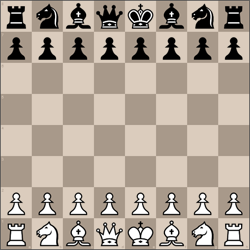August 23 1897
The Standard Union, Brooklyn, New York, Monday, August 23, 1897
DE VISSER'S GEM.
A Brilliant Game From the Recent Chess Meeting.
S. W. BAMPTON, THE PENNSYLVANIA CHAMPION, OUTPLAYED BY THE BROOKLYN EXPERT—TEED POINTS OUT A CONTINUATION THAT MIGHT HAVE SAVED THE GAME FOR PENNSYLVANIA.
One of the most brilliant games played at the recent meeting of the New York State Chess Association at Thousand Islands was between the Brooklyn expert, William Moralis De Visser, and the champion of the Pennsylvania Chess Association, Samuel Warren Bampton, in the team match. During the game De Visser sacrificed a piece for the attack and obtained a winning position, Bampton overlooking the best continuation. F. M. Teed, the noted Brooklyn problemist, has shown a very ingenious combination, by which Bampton might have altered the result.
Following is the game, with notes by De Visser:
William Moralis De Visser (white) vs. Samuel Warren Bampton (black)
Italian Game: Classical Variation, Giuoco Pianissimo
21. P-KR4 and White mates in three moves.
Some possibilities:
21. … Bxf2+ 22. Kf1 Nxe5 23. hxg5+ Kg7 24. Qh7# 21. … Nxe5 22. hxg5+ Kg7 23. Qh7# 21. … Nf6 22. hxg5+ Kg7 23. Qh7#
And this position occurs: 15. BxKP PxP …
FEN r4rk1/ppp1qp2/4nn1p/2b1B1p1/4p1P1/1PPP1N1P/1P3P2/R2QKN1R w - - 0 1
NOTES BY MR. DE VISSER.
(a) The usual continuation here is P-B3, followed by P-Q4.
(b) A very fine continuation, having for its object N-Qsq., and after forcing a change of Bishops by B-K3, bringing this Knight to K3 and KB5.
(c) Probably necessary to prevent the advance cf the Knight's Pawn, but of doubtful value.
(d) The keynote of the combination.
(e) Necessary, and planned in advance.
(f) Mr. Teed here points out a move for Black which leads to an even frame, with chances favoring Black: Instead of N-Q2 Black should have played N-Q5. If 18. QxN—QxBch; QxQ—N-B6ch, etc. White's best continuation would have been 18. PxN and BxP; 19. QxN QxQ would have given Black the best chances. If Black had tried on his seventeenth move N-B5 be would have lost by White's reply of P-Q4, which careful analysis has shown to lead to a win.
(g) Overlooking the forced mate which now follows. Black might have played NxB, and when NxQch, BxN, receiving three minor pieces for the Queen, a fair equivalent, but it is probable that White would have won.
























